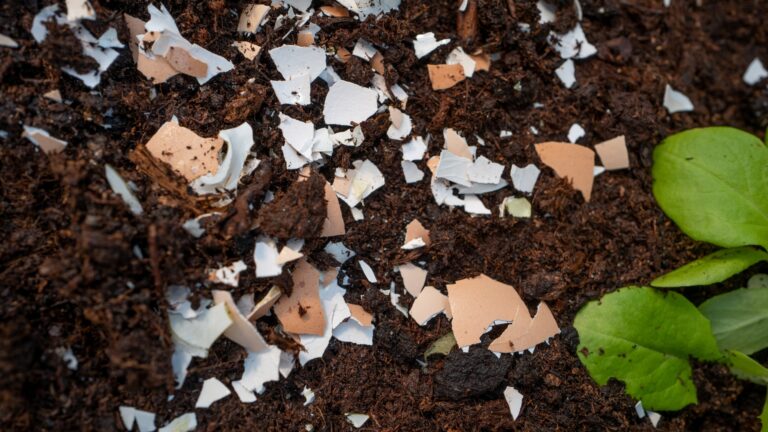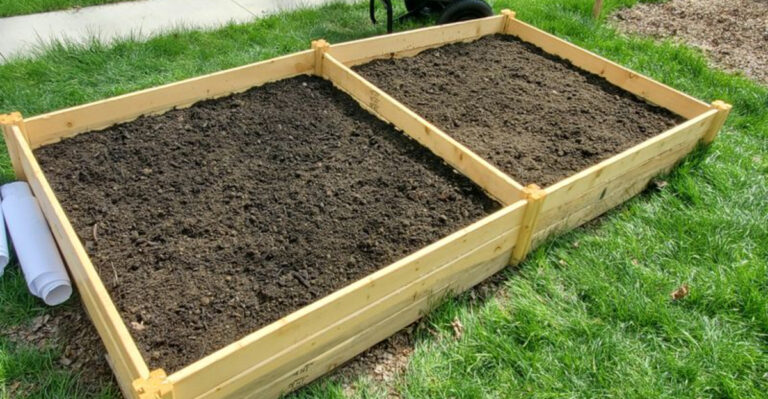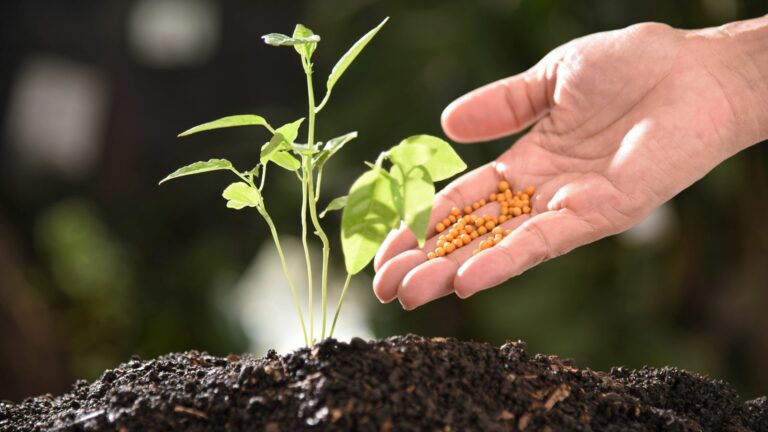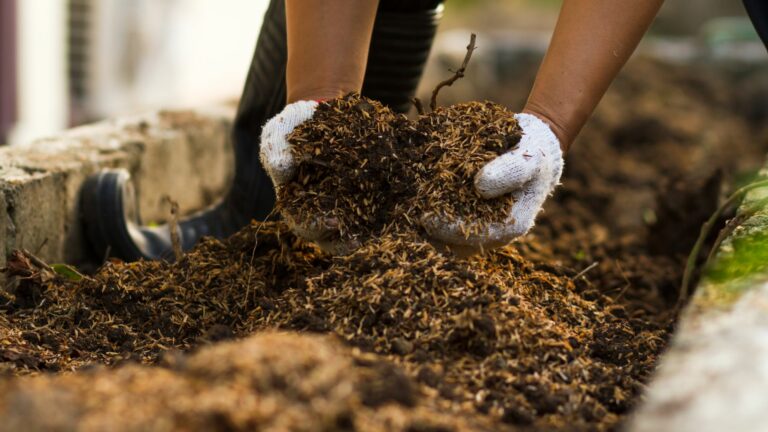How Often Should You Replace Mulch? 20 Tips For Keeping Your Garden Healthy
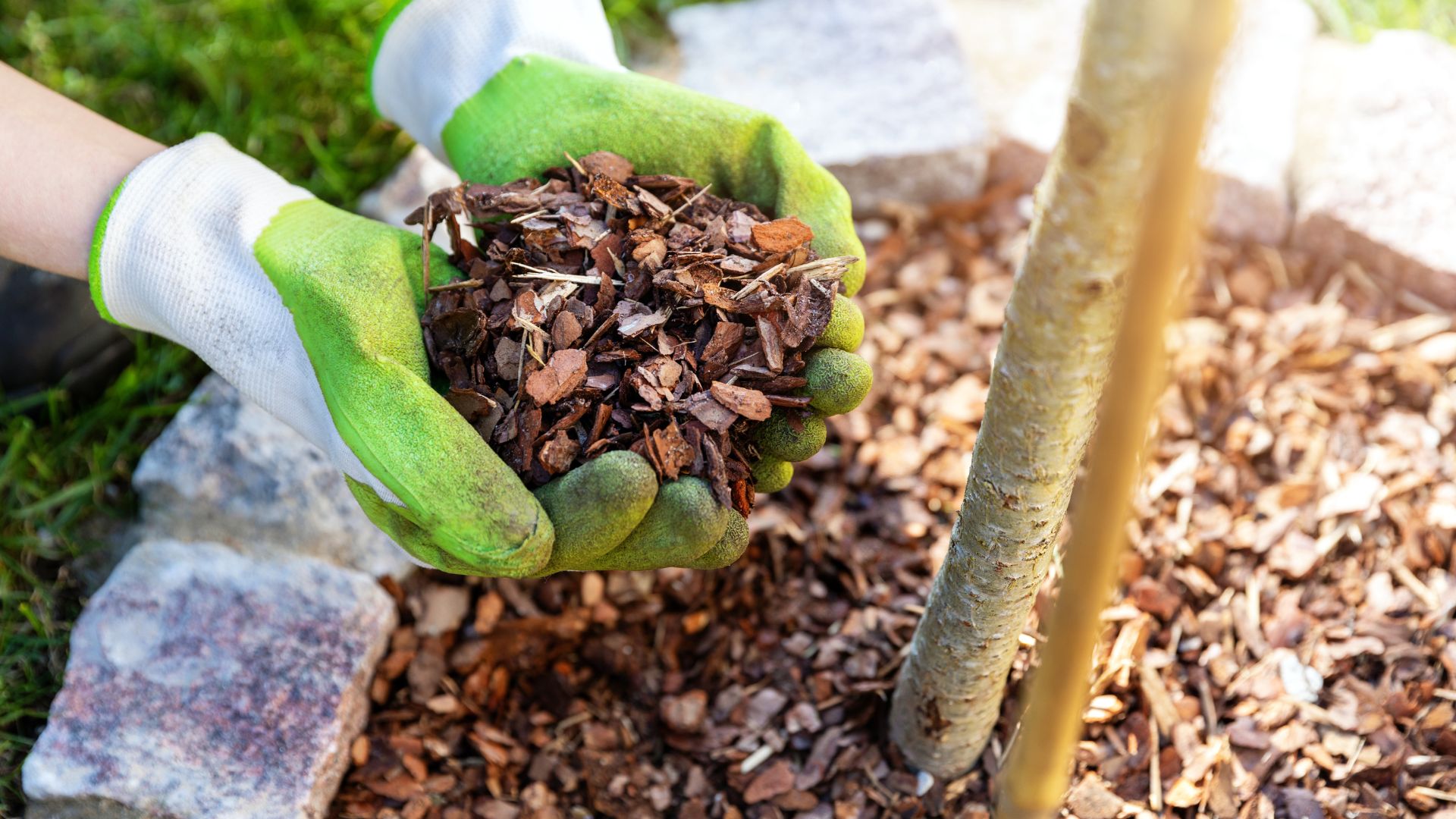
Keeping your garden mulched is like giving it a cozy blanket—comforting, protective, and essential for happy plants. But just like any good blanket, it needs a refresh now and then!
How often should you fluff up that mulch to keep your plants snug and thriving? These tips will guide you through the nuances of mulch replacement, offering engaging insights and practical advice.
We’ve got you covered. And hey, once you master the art of mulching, your plants might just thank you with their best blooms and biggest harvest yet.
1. Check Mulch Depth Every Season
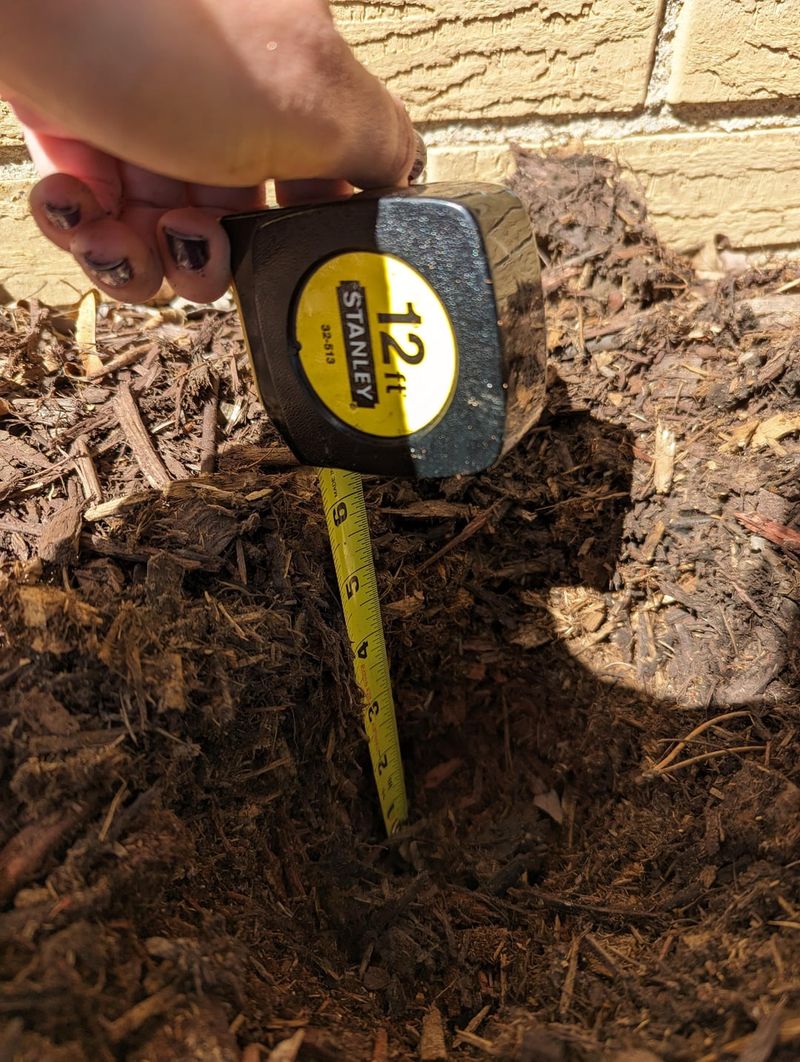
Do you ever wonder if your mulch is doing its job? Checking the depth each season is crucial! I hear 2-4 inches is the sweet spot. Too thin, and weeds might crash the party.
Too thick? Your plants could suffocate! So grab a ruler and give it a measure. You might find that Goldilocks moment where everything feels just right.
It’s a simple task, but it can save your garden a heap of trouble. Remember, it’s like giving your garden a seasonal check-up!
2. Replace Organic Mulch Annually
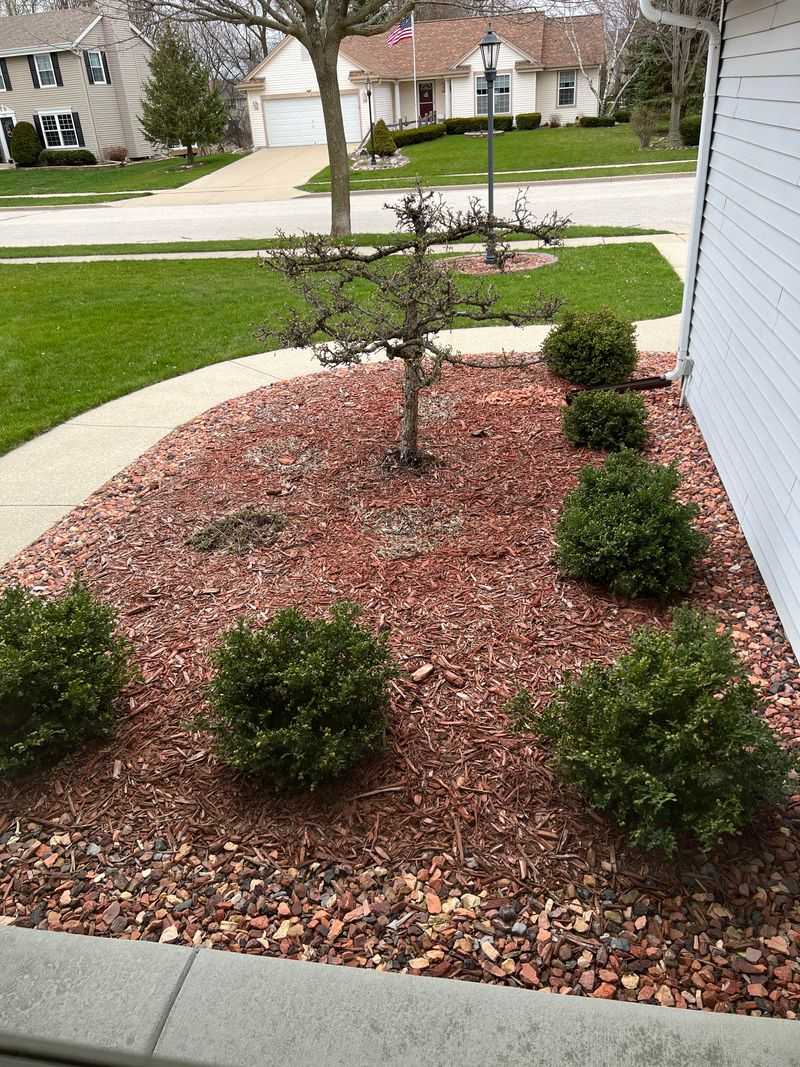
Organic mulch is like that favorite pair of jeans—it fits well but won’t last forever. Annually replacing it is essential because it breaks down over time.
As it decomposes, it releases nutrients that benefit your soil, but eventually, it disappears altogether, leaving your plants exposed. Keeping a yearly schedule ensures your garden stays protected and nourished.
Don’t miss that annual refresh. Your plants will thank you for the continued care. It’s like setting a recurring appointment with your garden for a much-needed makeover!
3. Top Off Mulch In Spring
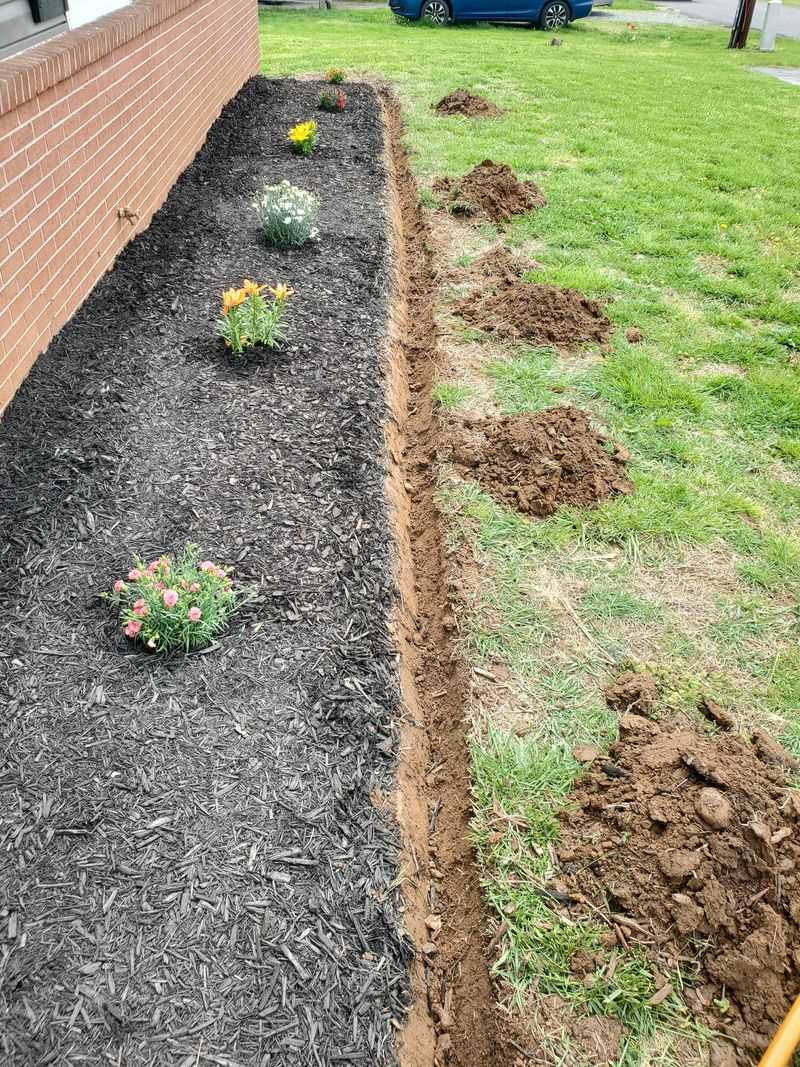
Spring is nature’s alarm clock, waking everything up for a fresh start. I find that topping off mulch during this time preps the soil for the growing season. It’s like rolling out the red carpet for new life!
Adding a fresh layer helps retain moisture and keeps those pesky weeds at bay, giving your plants the best chance to thrive. Plus, who doesn’t love a garden that looks new and inviting?
It’s all about setting the stage for a successful season ahead.
4. Refresh Mulch In Fall
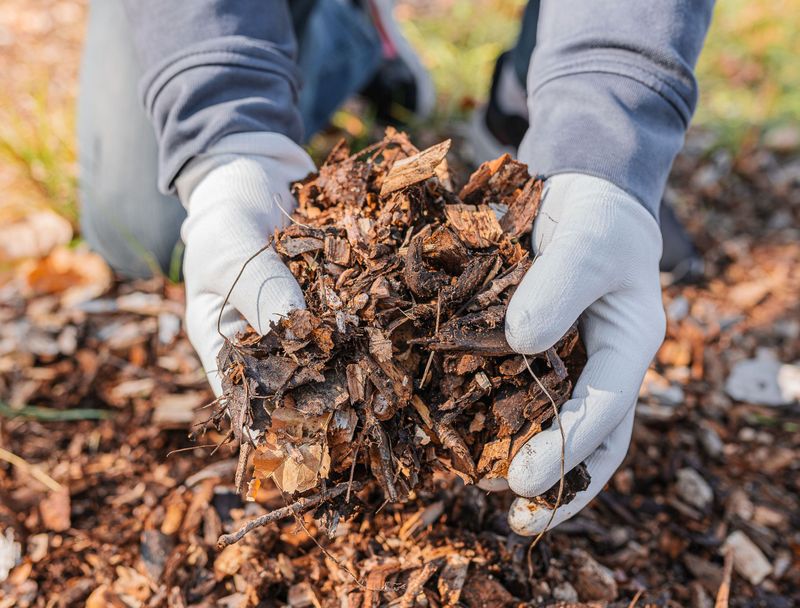
Fall is that time of year when I think about getting cozy, and so should your plants. Refreshing mulch in fall is like tucking them in for winter. It acts as insulation, protecting roots from the biting cold.
Plus, as the mulch breaks down, it enriches the soil, readying your garden for spring. It’s an investment in future growth, ensuring your plants wake up healthy and ready to flourish when the sun returns.
So grab that mulch and spread some warmth before winter sets in!
5. Replace Mulch When It Looks Decomposed
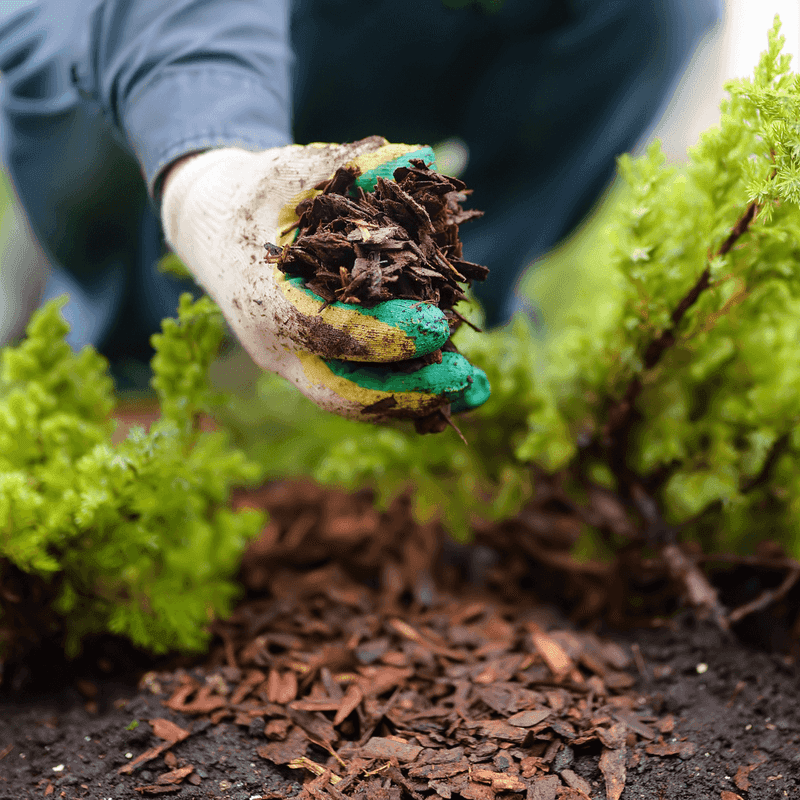
Have you noticed your mulch looking a bit sad and shabby? When it appears decomposed, it’s time for a replacement. Decomposed mulch means the nutrients have fully absorbed into the soil, and it’s not doing its protective job anymore.
Think of it as a worn-out security blanket for your plants. Replacing it ensures continued nourishment and defense against weather extremes.
Keep an eye out for these signs, and don’t hesitate to refresh. Your garden will appreciate the attention, staying healthy.
6. Watch For Mold Or Fungal Growth
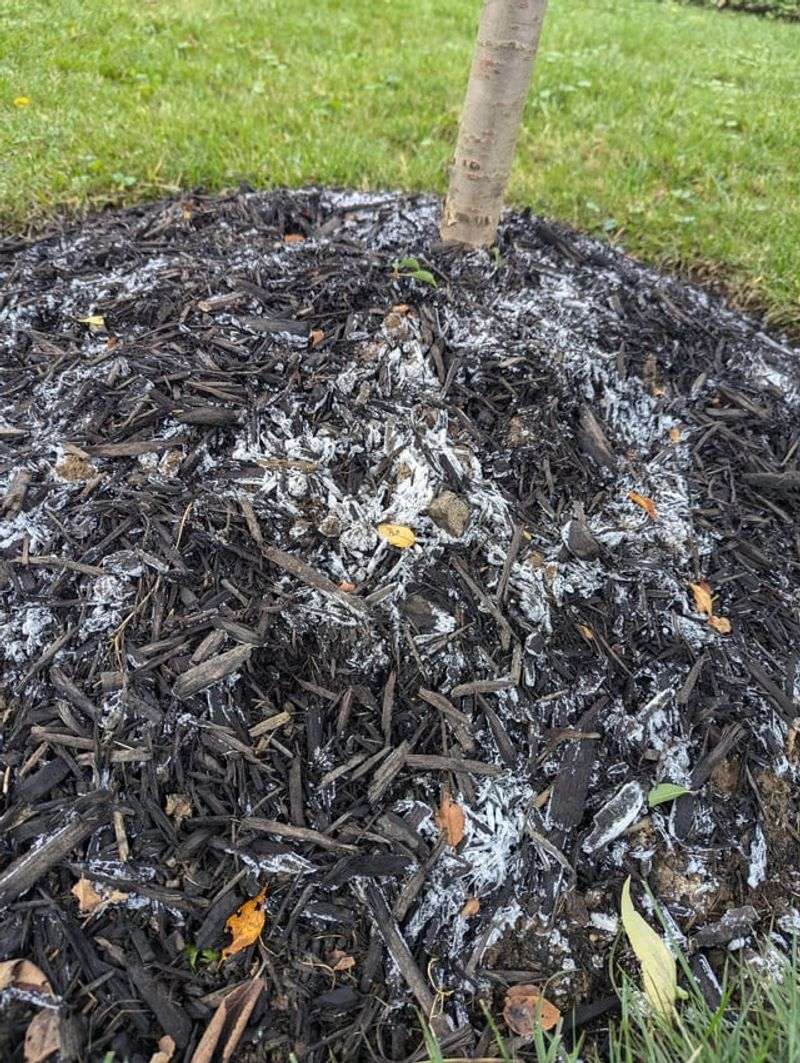
Ever spotted a bit of mold or fungus hanging out with your mulch? It’s their way of saying, “Time for a change!” Mold and fungal growth indicate excessive moisture and poor ventilation.
Left unchecked, they can harm your plants. So, keep a watchful eye and ask yourself, “Is my mulch looking a bit too furry?” If so, it’s time for a refresh.
Swap it out and see how your garden breathes a sigh of relief. Mold is not just uninviting. It’s a signal to renew!
7. Fluff Mulch Regularly
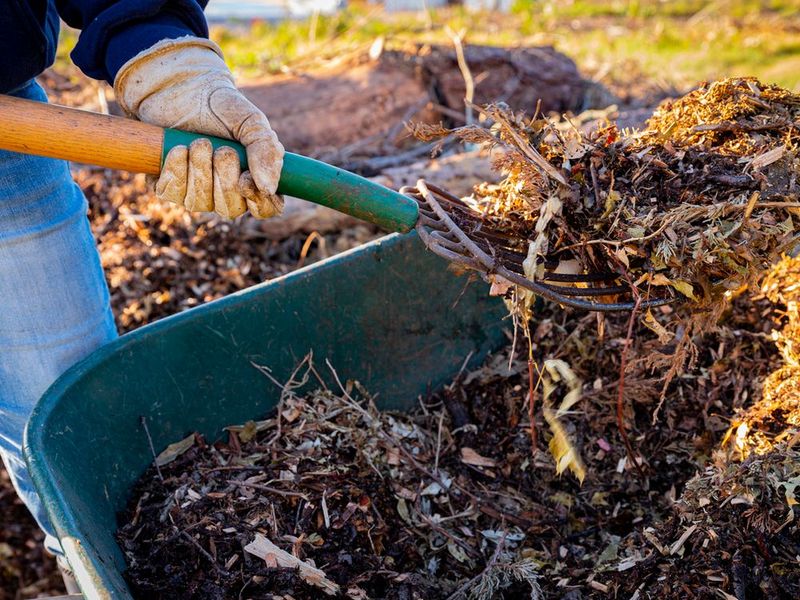
Compacted mulch is like a tight sweater—restrictive and uncomfortable. Fluffing it regularly prevents compaction and improves airflow, allowing your plants to breathe easy.
I like to think of it as giving your garden a little massage, loosening things up and keeping everything flowing. A rake is your best friend here, helping to lift and refresh the mulch.
It’s a simple task that makes a big difference, keeping your garden lively. Regular fluffing keeps your plants smiling and your garden looking its best.
8. Remove Old Mulch If It Becomes Too Thick
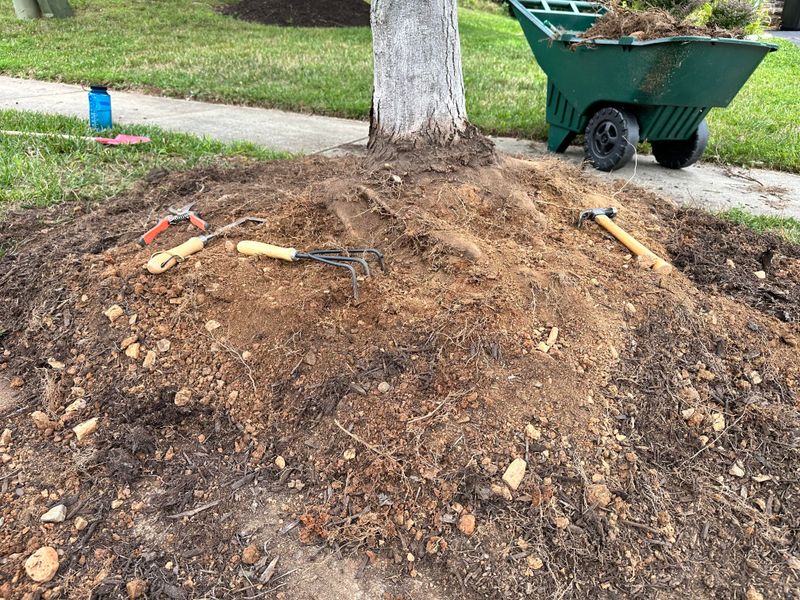
Have you ever felt like your garden is a bit suffocated? Thick mulch can do that! When mulch becomes too thick, it can smother your plants, blocking air and water.
In such cases, removing some of it can be a breath of fresh air for your garden. I once had a similar issue, and trimming down the mulch made a noticeable difference.
Your plants will appreciate the breathing room, and you’ll likely see them perk up in response. It’s a small change with a big impact!
9. Replace Mulch If It Has A Sour Smell
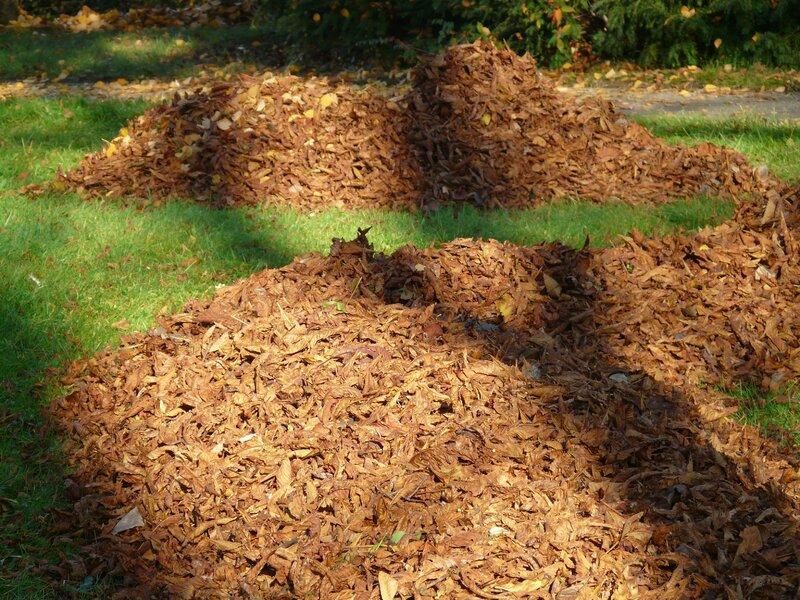
Ever encountered a sour smell in your garden? It’s mulch’s way of saying “Help!” A sour odor suggests rot or poor aeration within the mulch. It’s like milk gone bad, and nobody wants that!
Replacing sour-smelling mulch prevents rot from spreading and ensures your garden remains fresh and healthy. It’s an easy fix that can save your plants from unnecessary stress.
So don’t ignore that funky aroma—it’s a cue that your garden needs a refresh. A nose test is sometimes all it takes!
10. Check Mulch Around Perennials
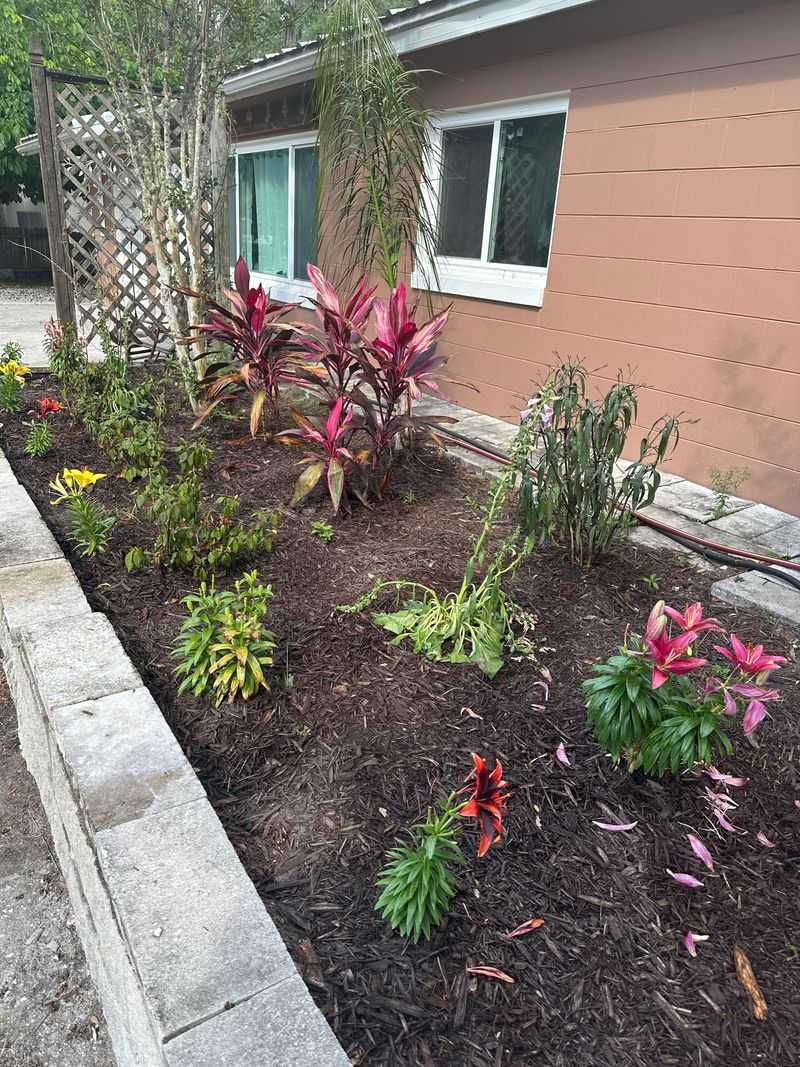
Do you adjust mulch differently for perennials? Some plants need seasonal tweaks, like a wardrobe change for the weather! Checking mulch around perennials ensures they get the right care at the right time.
A little more in winter, a bit less in summer—it’s all about balance. Keeping an eye on this can make a world of difference for their growth and health.
It’s like tailoring your care to their specific needs, ensuring they’re happy all year round. Your perennials will surely thank you!
11. Compost Old Mulch If It’s Fully Decomposed
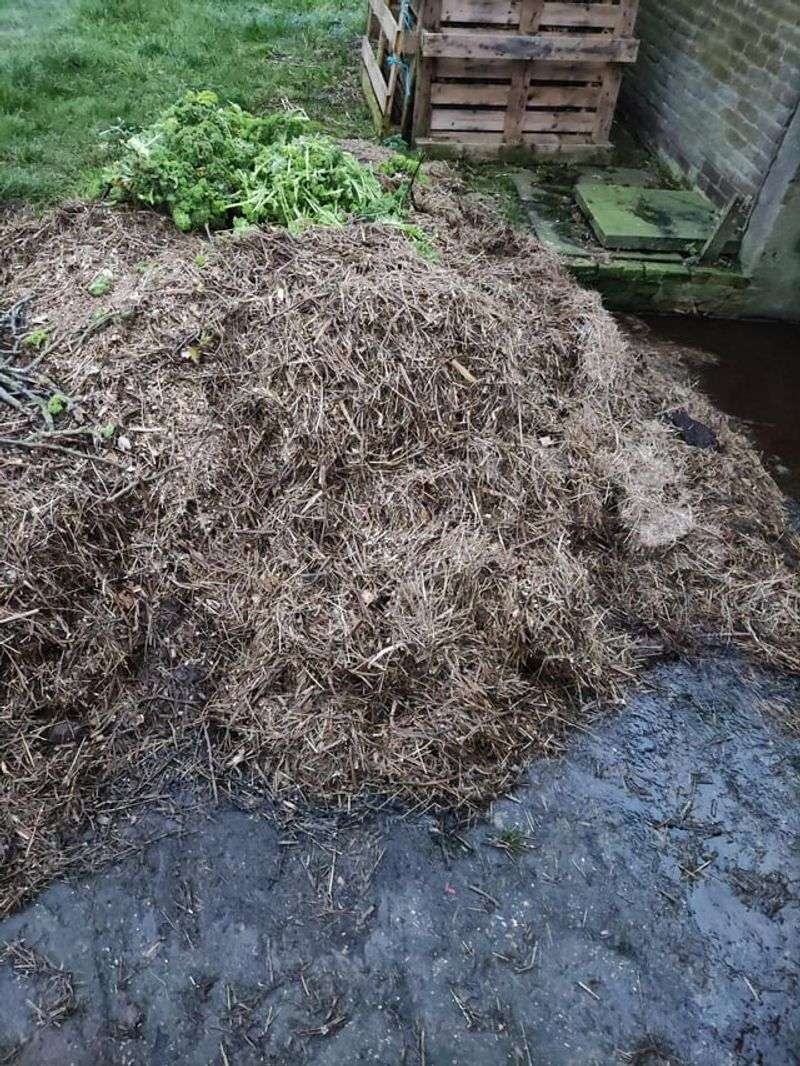
Have you ever thought of your old mulch as a resource? If it’s fully decomposed, composting it can recycle nutrients back into the soil. It’s like a magic trick for your garden, turning waste into nourishment.
Plus, it’s an eco-friendly way to manage garden material. Instead of discarding old mulch, why not give it a second life? It’s a sustainable practice that benefits both your garden and the environment.
Your plants will do a little happy dance with that extra boost of nutrition!
12. Use A Rake To Refresh The Surface
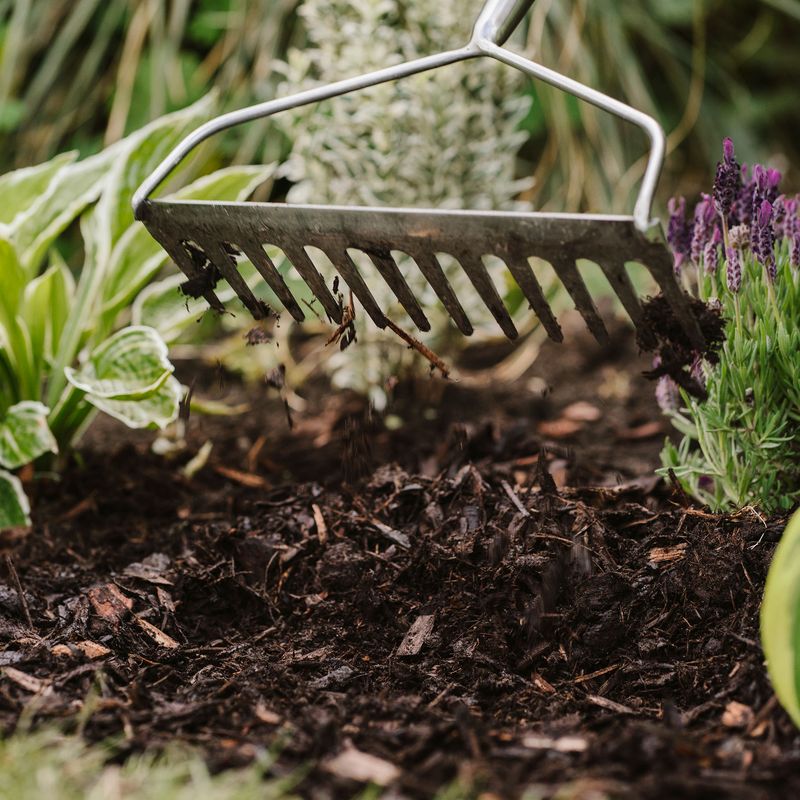
Do you rake your mulch often? It’s a simple act that extends its life. Using a rake to refresh the surface helps mix the layers, preventing crusting and allowing moisture to penetrate.
It’s like giving your mulch a little makeover! I once realized how a quick rake could make everything look and feel better, helping water and nutrients reach the soil.
This easy task keeps your plants happy and your garden neat. A rake is more than a tool. It’s a garden’s best friend!
13. Replace Colored Mulch When It Fades
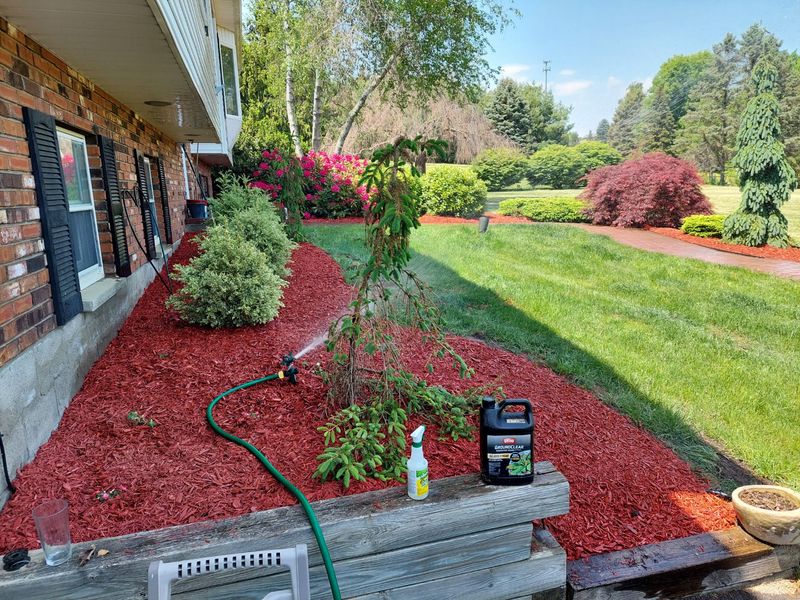
Ever notice how colored mulch can lose its charm? When it fades, it’s time for a refresh. Like a coat of paint, mulch can brighten and enhance your garden’s appearance.
But it’s not just about looks. Faded mulch may also mean it’s less effective. Replacing it restores both the aesthetic appeal and functionality.
Your garden deserves to look its best, and fresh mulch adds that touch of renewal. It’s a win-win situation for style and substance! Say goodbye to the dull and hello to the new!
14. Avoid Mulch Buildup Against Stems
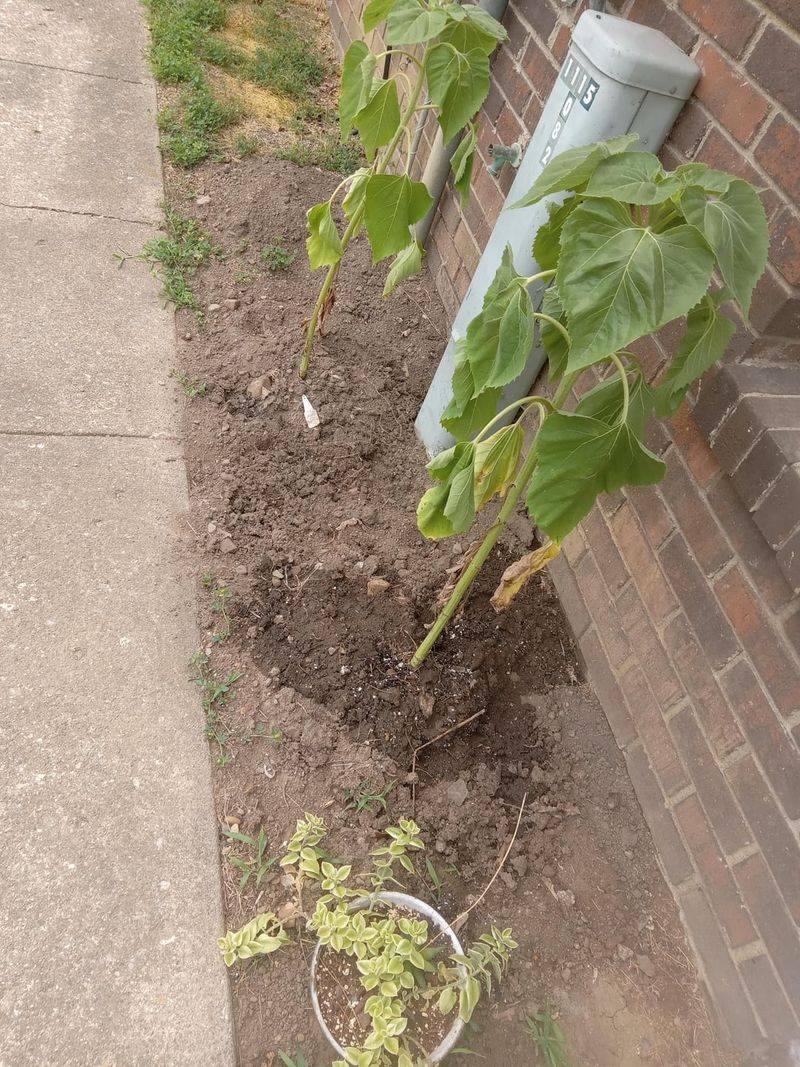
Mulch piling up against stems is like wearing a turtleneck that’s too tight. It can cause rot and disease, something no gardener wants. Ensuring mulch is away from stems allows air circulation, keeping your plants healthy and strong.
I’ve seen this simple adjustment make a noticeable difference in plant health. It’s a small step, but it prevents big problems. So give your plants some space, and watch them thrive!
It’s all about finding that perfect balance for your garden’s wellbeing.
15. Replenish Mulch After Heavy Rain
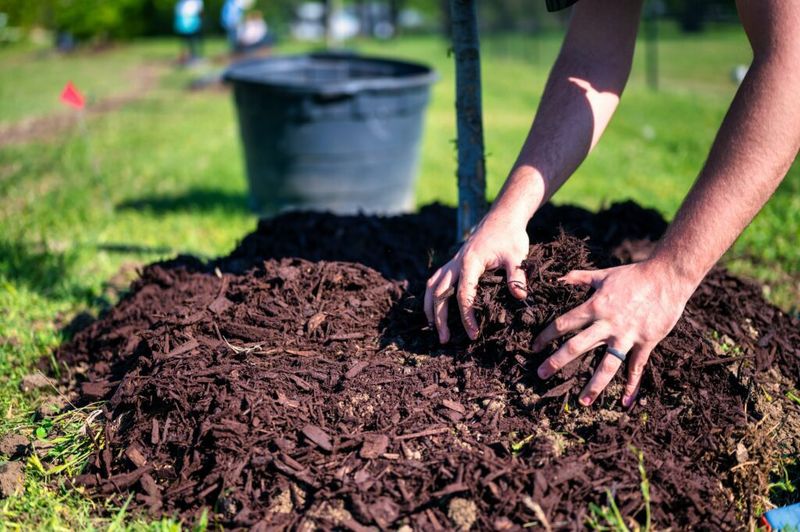
Heavy rain can wash away mulch, leaving your soil exposed and vulnerable. Replenishing mulch after such downpours helps prevent soil erosion and retains moisture.
Have you ever checked your garden post-rain and thought, “Where did all the mulch go?” Adding a new layer restores protection and keeps things in place.
It’s like patching up a hole in your garden’s armor, ensuring everything stays secure. Your plants will weather the storm much better with this added layer of defense.
16. Watch For Insect Infestations
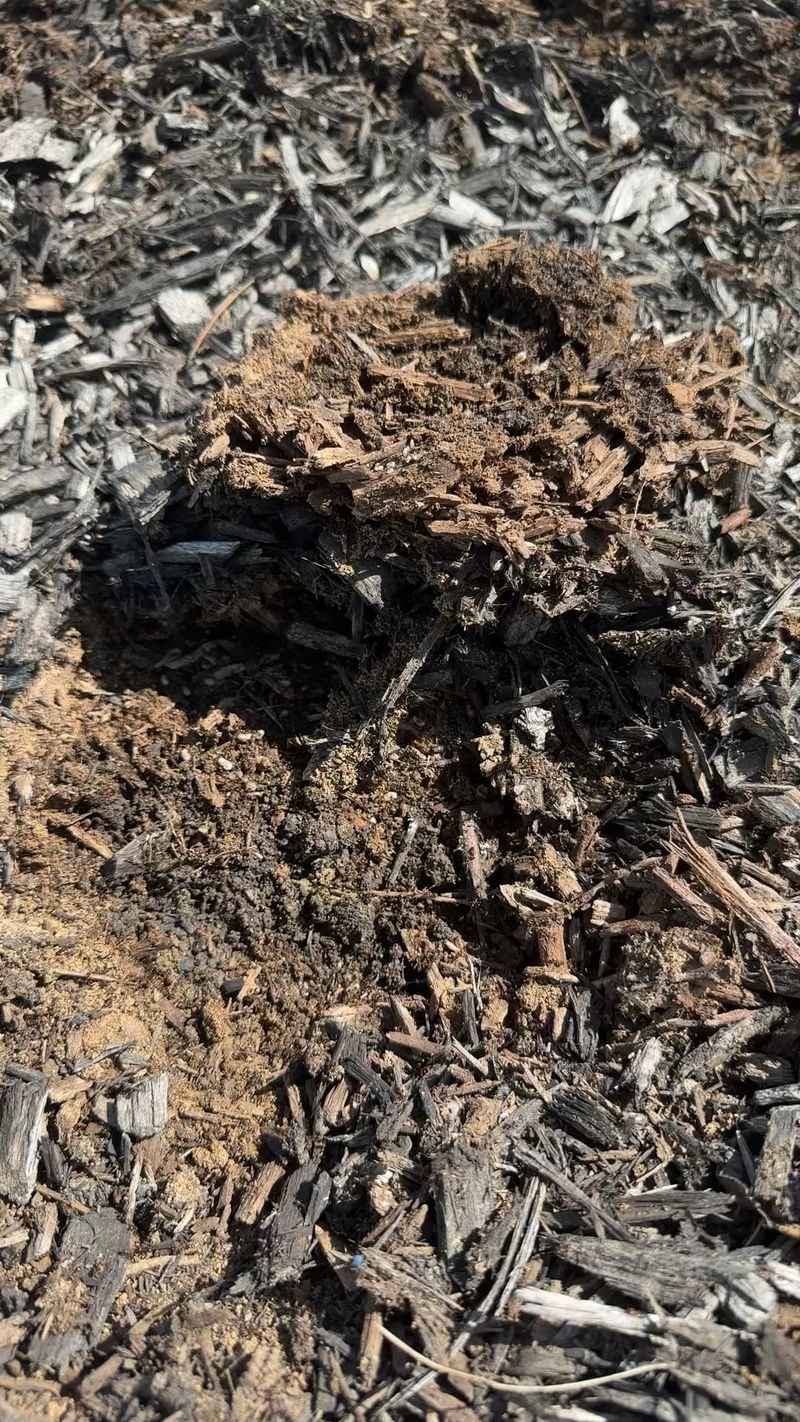
Insects love old mulch like kids love candy! Watch for infestations, as certain pests thrive in decaying material. If you notice unwanted visitors, it might be time for a mulch refresh.
Keep an eye out, and ask yourself if your garden is becoming a bug hotel. New mulch will disrupt their cozy habitat, protecting your plants from harm.
It’s a proactive step that ensures your garden remains a haven for plants, not pests. A vigilant eye can keep those critters at bay!
17. Adjust Mulch Thickness Based On Weather
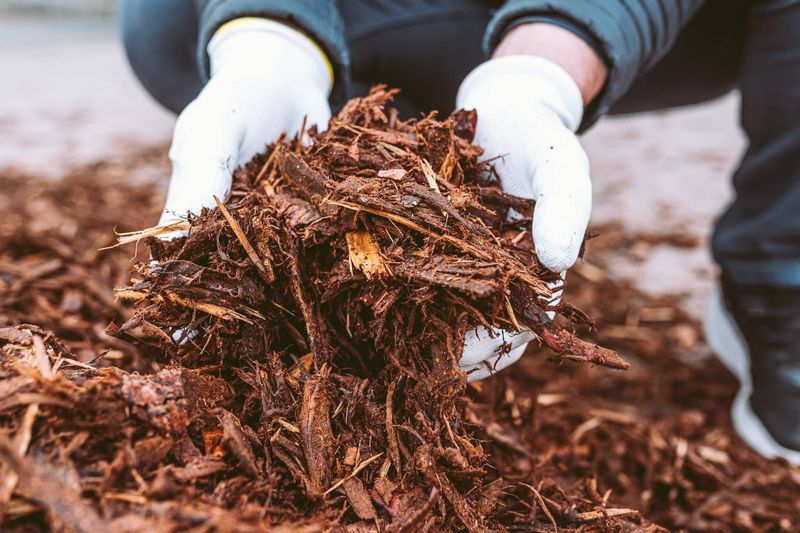
Weather can be as fickle as fashion, and your mulch needs to keep up! Adjusting thickness based on the season ensures optimal plant health.
More mulch in summer retains moisture. Less in winter prevents frost damage. I once found this adjustment to make a huge difference in how my garden thrived.
It’s like dressing your plants in layers, ready for whatever Mother Nature throws their way. Seasonal tweaks keep your garden resilient and prepared for all weather conditions.
18. Replace Synthetic Mulch Less Often
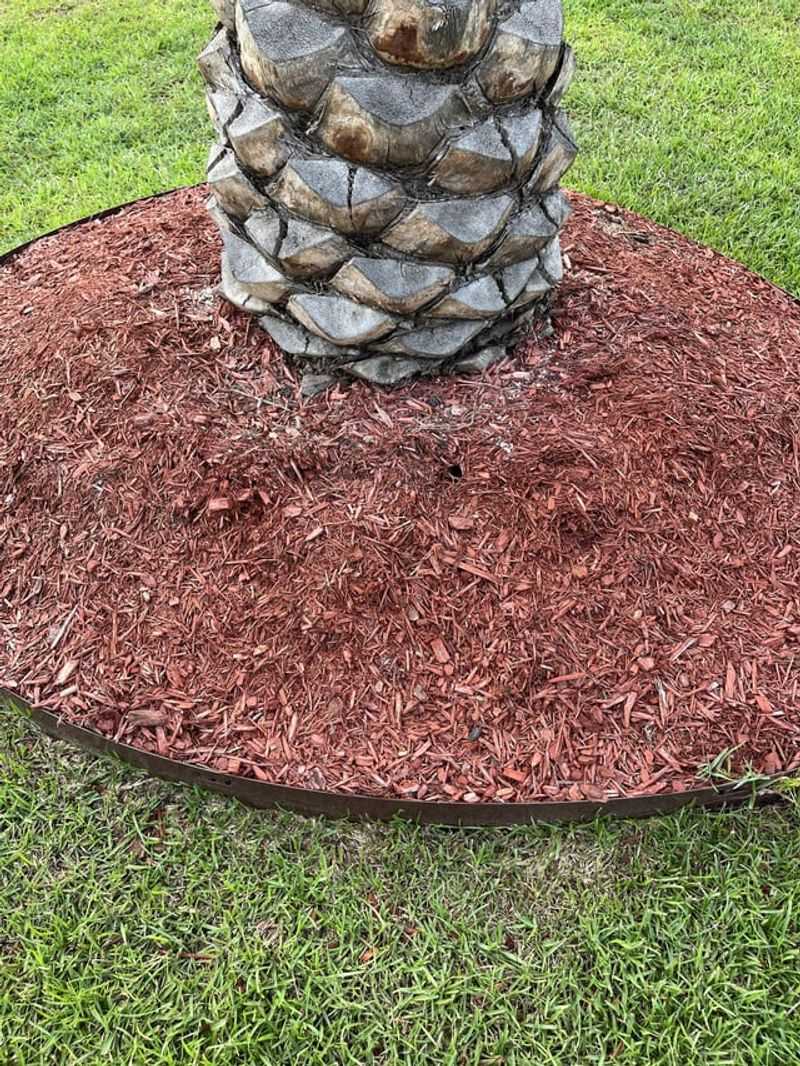
Synthetic mulch is the marathon runner of the mulch world—it lasts longer! Unlike organic options, synthetic mulch doesn’t break down, meaning you can replace it less often.
It’s a low-maintenance choice that still offers protection and aesthetic appeal. However, do keep an eye on its condition, as it can wear over time.
Choosing synthetic mulch is like opting for the long-lasting option, saving time and effort. Just remember, less frequent doesn’t mean no maintenance at all!
19. Choose The Right Mulch Type For Your Climate
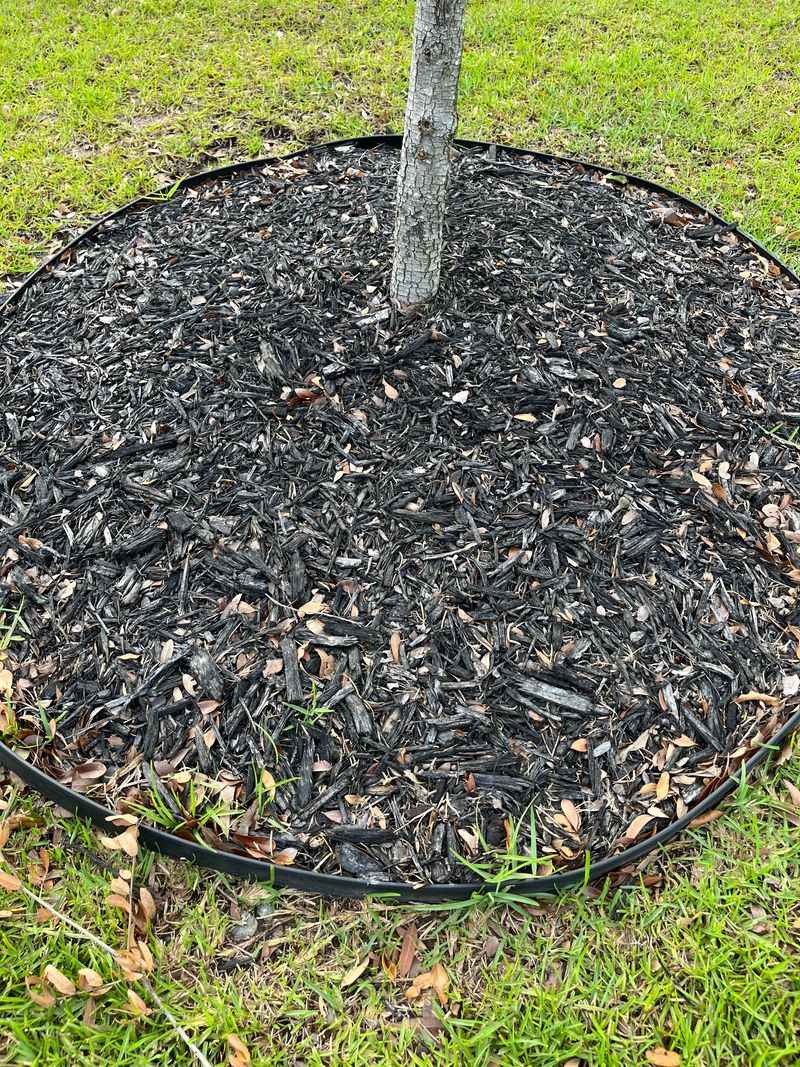
Mulch comes in many flavors, and choosing the right type for your climate is key. Some mulches last longer in specific conditions, providing better protection and nourishment.
Whether you’re in a rainy region or a dry one, the right mulch can make all the difference. Think of it as matching your garden’s needs to its environment.
It’s about finding the best fit, like choosing the perfect pair of shoes for a long walk. Your garden will reward you with robust growth and health.
20. Observe Your Plants
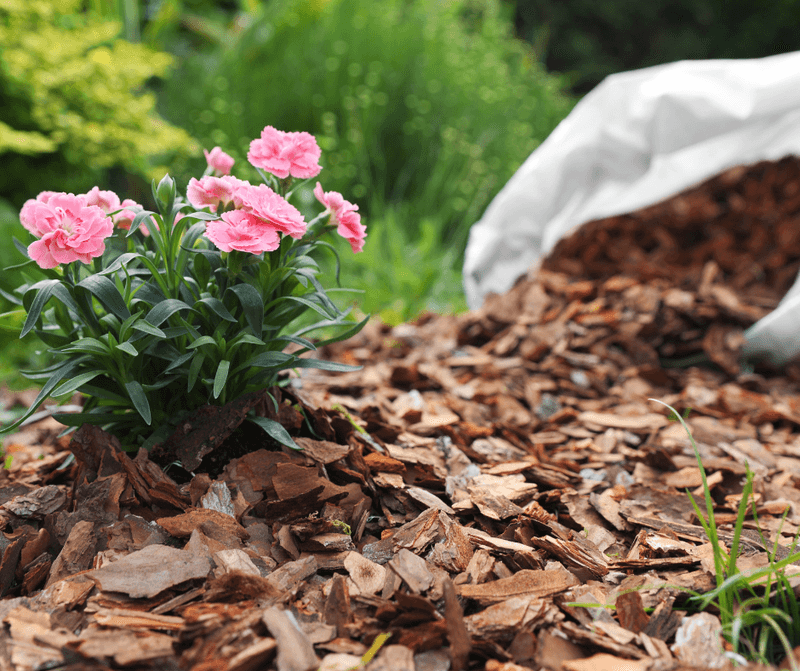
Have you noticed your plant’s growth slowing down? It might be time to refresh the mulch. Observing your plants gives insights into their health and the mulch’s effectiveness.
It’s like having a conversation with your garden. Their condition tells you when they need changes. Keeping an eye on growth patterns aids in timely mulch replacement, ensuring continuous nourishment and protection.
It’s all about being in tune with your garden—listening and responding to its needs with care.

